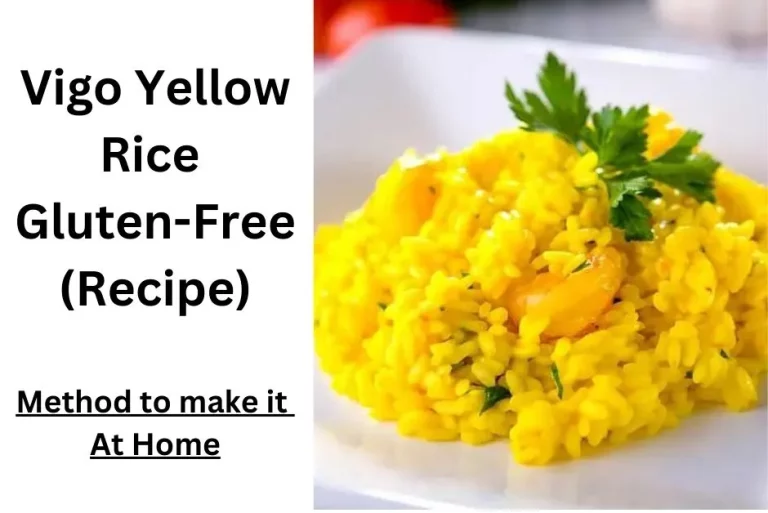Is kosher Salt Gluten free?
Here is the simple and straight answer to Is Kosher Salt Gluten Free? Kosher salt is generally considered to be gluten-free. It’s been five years that I have had Celiac disease so every time I tried to cook food or visit somewhere, I had to face a problem. The problem was that I didn’t know which salt to use for celiac. I researched and found that Kosher Salt is gluten-free and can be used in day-to-day life.
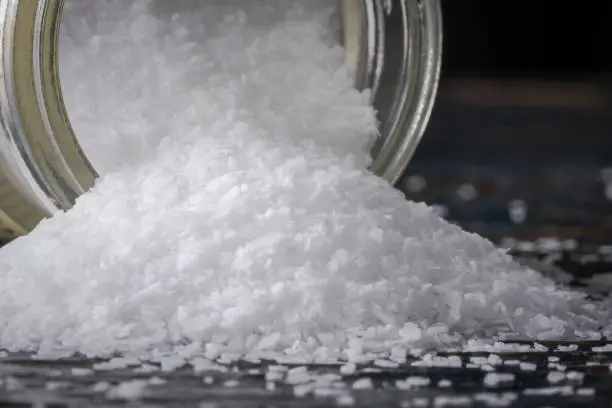
As I said, kosher Salt is Gluten-free so there is a reason behind it. This is because most kosher salts are made from either sodium chloride or evaporated sea salt, both of which do not contain any gluten-containing ingredients. However, some brands of kosher salt may contain additives such as anti-caking agents and dextrose, which could. contain gluten.
if you are health conscious and have an allergy to gluten then read A fit philosophy of healthy gluten-free easy recipes to enjoy delicious, healthy, gluten-free food without compromising your health or taste.
Is Kosher Salt Gluten Free? – Gluten Content in Kosher Salt
Kosher salt is a type of coarse grain sea or rock salt used mainly in the koshering process to remove moisture from meat before it is cooked or consumed. This versatile ingredient has many uses beyond koshering and can be used as a flavorful addition to dishes.
Different Types of Kosher Salts and Their Distinctive Properties
There are several different types of kosher salt available on the market today. The most common variety is Diamond Crystal kosher salt which has a lighter texture and a mild flavor.
Morton kosher salt has a slightly coarser texture with larger crystals and a slightly more intense flavor than Diamond Crystal. Both types of kosher salt have an excellent ability to retain flavor and moisture.
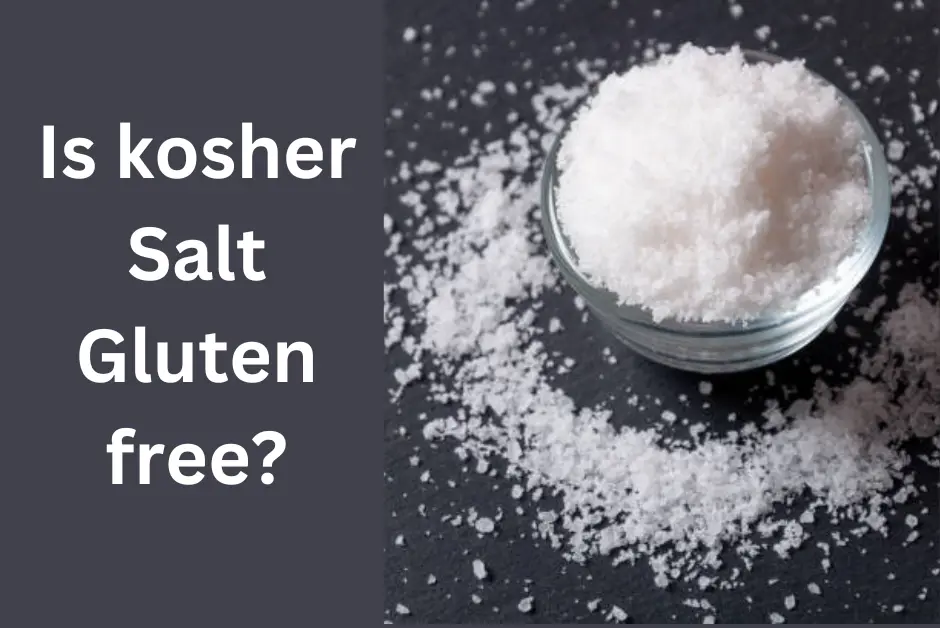
Is table salt gluten-free?
Table salt is not necessarily gluten-free as it may contain additives such as anti-caking agents which can contain gluten. It is important to check the label for potential allergens before using table salt in any recipe.
Kosher salt is a great option for those looking for a gluten-free alternative to table salt. However, there are some specialty brands available that are free from any gluten-containing ingredients – these should be clearly labeled as “gluten-free”.
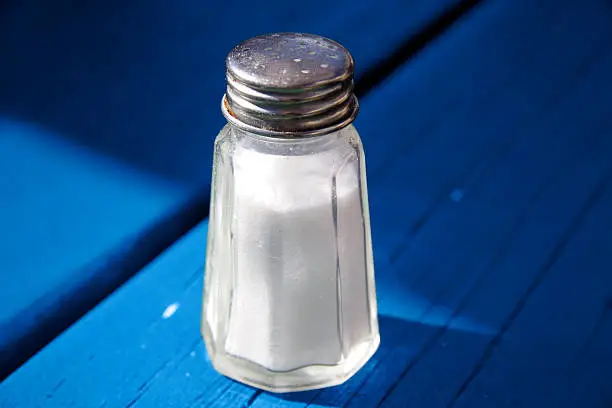
How to Use Kosher Salt in Recipes for Maximum Flavor
Kosher salt has a unique taste and texture that makes it perfect for adding flavor to dishes without overpowering them. To maximize its flavor, kosher salt should be added after food has been cooked or prepared and before serving. Adding kosher salt at the end of cooking time helps preserve its delicate flavor.
- Start with a light sprinkle – Kosher salt is much more coarse than regular table salt, so a little goes a long way. Start with a small amount and adjust as needed to achieve the desired level of flavor.
- Balance out flavors – If you are using salty ingredients such as cured meats or cheese, balance them out by adding in some kosher salt. This will help create an overall more balanced flavor profile.
- Enhance the flavor of fresh ingredients – Fresh herbs and vegetables taste best when lightly salted with kosher salt, as this will help to draw out their natural flavors without making them too salty.
- Add at the end of cooking – Adding your kosher salt near the end of cooking will prevent it from dissipating too quickly and give your dish the perfect amount of flavor.
Following these tips will help you get the most out of using kosher salt in recipes for maximum flavor
I have also tried Yakisoba noodles. So it might be possible that you are also looking to get an answer for whether is yakisoba gluten-free?
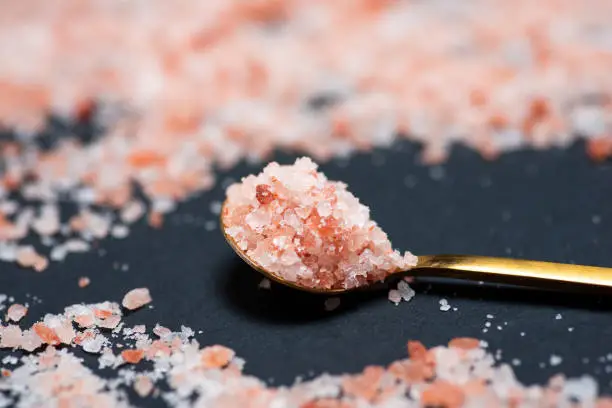
Popular Gluten-Free Recipes You Can Try With kosher salt gluten-free:
Kosher salt can be used in a variety of gluten-free dishes such as: Now you might know Is Kosher Salt Gluten free? or not but let’s dive into recipes that we can try with Kosher salt.
- roasted vegetables,
- soups,
- salads,
- sauces, and marinades.
It can also be used to enhance the flavor of grilled meats or fish. Additionally, kosher salt is perfect for sprinkling over popcorn for an extra burst of flavor.
Try using kosher salt with other flavorful ingredients such as garlic, onion powder, and herbs for maximum impact. You can also use kosher salt to enhance the flavors of savory dishes like soups or stews – just remember not to overdo it as kosher salt is much more powerful than regular table salt.
Finally, here are some delicious gluten-free recipes you can make with gluten-free kosher salt:
- Try making herb-crusted salmon with lemon and dill,
- Cheesy roasted cauliflower topped with parmesan,
- or Zesty cilantro lime shrimp tacos – all made even tastier with a pinch of kosher salt.
Tips for Perfecting Your Gluten-Free Baking with kosher salt:
For baking applications, kosher salt should be dissolved in liquid before use. This helps ensure that the salt is evenly distributed throughout the recipe and prevents clumping which can affect the texture and taste of baked goods. When using kosher salt in bread recipes, it is important to remember that less is more as kosher salt can have a strong flavor.

Conclusion
Kosher salt is a versatile ingredient that has many uses beyond koshering and can be used to add flavor to dishes without overpowering them. So the answer to Is Kosher Salt Gluten free? is that It is generally gluten-free.
With its unique taste and texture, kosher salt has become an essential ingredient in creating delicious gluten-free recipes. By following these simple tips this flavorful ingredient will help you create perfect gluten-free meals every time!
Happy Baking! 🙂
Related posts:



